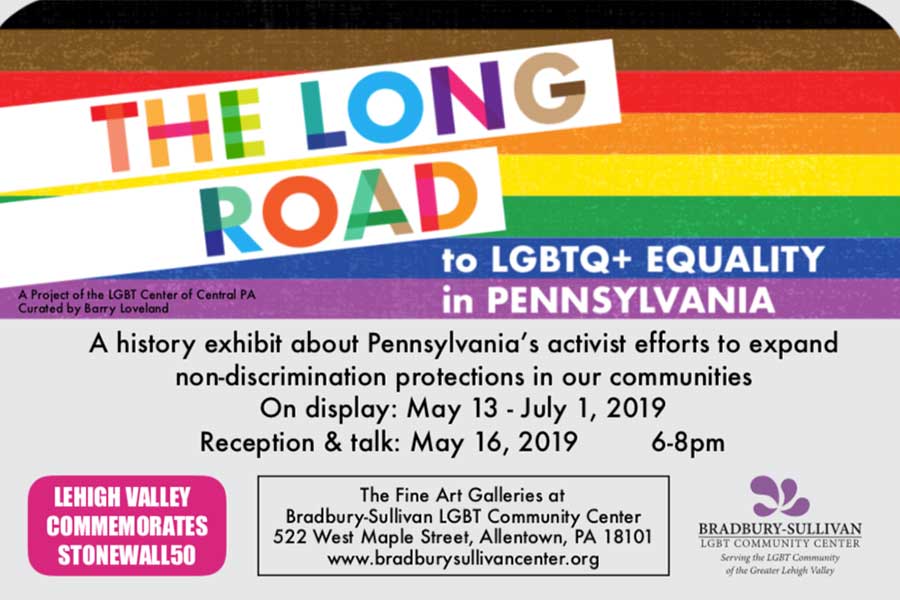LGBT advocates are preparing to unveil a new traveling exhibit intended to galvanize support for a statewide LGBT-inclusive antibias law.
Pennsylvania is the only state in the Northeastern United States that doesn’t have such legislation.
“The Long Road to LGBTQ+ Equality in Pennsylvania” chronicles the efforts of LGBT advocates in Pennsylvania, beginning with Philadelphia’s 1965 Dewey Restaurant sit-in.
The exhibit is composed of six floor panels with texts and videos highlighting the political and personal struggles of achieving LGBT equality, said Barry Loveland, an organizer. The display will spotlight efforts to enact LGBT antibias laws in cities including Lancaster, York, Allentown and Harrisburg.
The traveling exhibit is sponsored by the PA LGBT History Network, a cooperative group of organizations, institutions and individuals that have collections and/or an interest in LGBTQ+ history. The LGBT Center of Central PA is providing administrative support on behalf of the network.
A ribbon-cutting ceremony will be held mid-February in the state capitol building in Harrisburg. Gov. Tom Wolf has been invited to attend, Loveland said.
A spokesperson for Wolf had no comment for this story.
Three duplicates of the exhibit will circulate throughout various venues across the commonwealth, including in government offices, historical societies, museums and schools, Loveland said.
The exhibit is meant to coincide with the 50th anniversary of the 1969
Stonewall Riots, a pivotal event in LGBT history.
It’s funded by grants from the Schlegel-Deibler Foundation, the Magnus Hirschfeld Fund and the Montgomery County LGBT Business Council, said Loveland, adding The LGBT Center of Central Pennsylvania also is expected to contribute.
Venues for the exhibit will include museums, libraries, schools, community centers, historical societies and government offices.
“A strategic priority would be to try to get the exhibit into places that don’t have local protections,” Loveland noted.
He said it may be possible for speakers to appear at venues with the exhibit — which, in addition to presenting the history of Pennsylvania’s LGBT movement, is issuing a “call to action” for additional protections.
“The idea of the exhibit is that it could stand on its own, with no related programming. But, depending on the situation, there might be accompanying speakers who can elaborate on it.”

